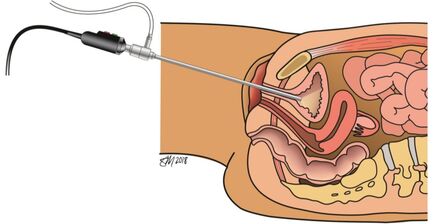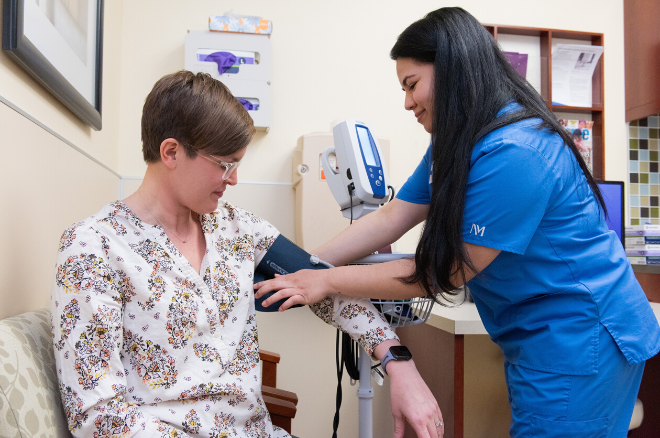Diagnostic Tests
|
When you come to the Northwestern Medicine Women’s Integrated Pelvic Health Program, you can expect the most current diagnostic and testing procedures. We use results of examination and testing to determine the most effective treatment options for each patient.
We have designed our diagnostic and testing rooms to make our patients as comfortable as possible. All procedure rooms have private, adjoining bathrooms. The following are descriptions of some of the diagnostic procedures used at the center. Complex uroflowmetry This procedure is performed to measure the amount of urine in the bladder and the rate at which the urine flows. Cysto-urethroscopy Also known as cystoscopy, this test is used to examine the inside of the bladder and urethra. It is often used to diagnose and evaluate urinary tract disorders, including:
Cystometry Also called a cystometrogram, this procedure is administered to measure pressure in the bladder. The test requires patients to perform certain maneuvers while their bladder is being filled gently with sterile water through a catheter, which helps diagnose conditions such as:
Pressure-flow voiding studies These studies are performed to determine the ability of the bladder and urethra to properly expel urine. Urethral pressure profilometry This procedure reveals the pressure in the urethra. The results can help physicians guide surgical treatment. Transrectal and transanal 3D ultrasound These ultrasounds show images of the low rectum, anal sphincters and pelvic floor in patients with a variety of anorectal disorders. Anorectal manometry (ARM) Used to study the function of the anus and rectum, this test evaluates the strength of the muscles that control bowel movements. Electromyography (EMG) testing This testing is employed to determine if the nerves supporting the sphincter muscles are intact and that the muscles relax and contract as they should. Urodynamic testing This includes several tests to evaluate the function of your lower urinary tract. Learn more about urodynamic testing. |
To Request an Appointment
If you're suffering from a pelvic floor disorder, you don't have to live with the symptoms. To learn about treatment options, call 312.694.7337 to schedule an appointment with one of our urogynecologists. MEET OUR TEAM
Our transdisciplinary team works together to ensure that each patient receives a tailored and highly individualized plan of care. |




